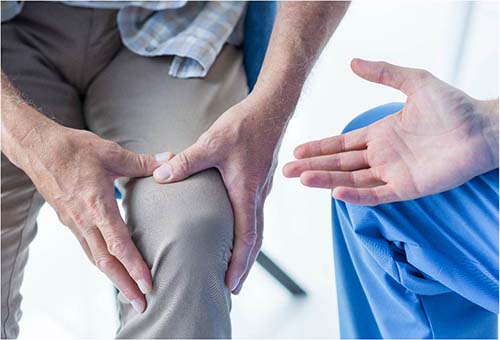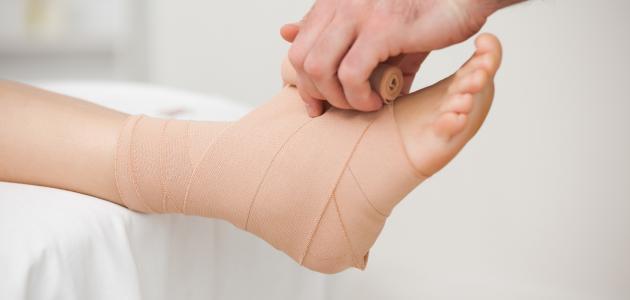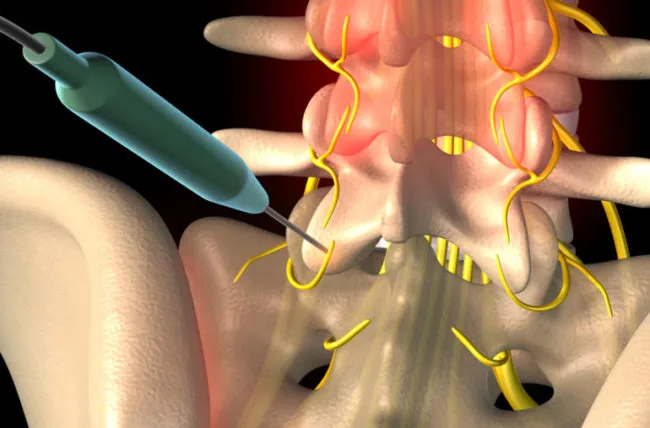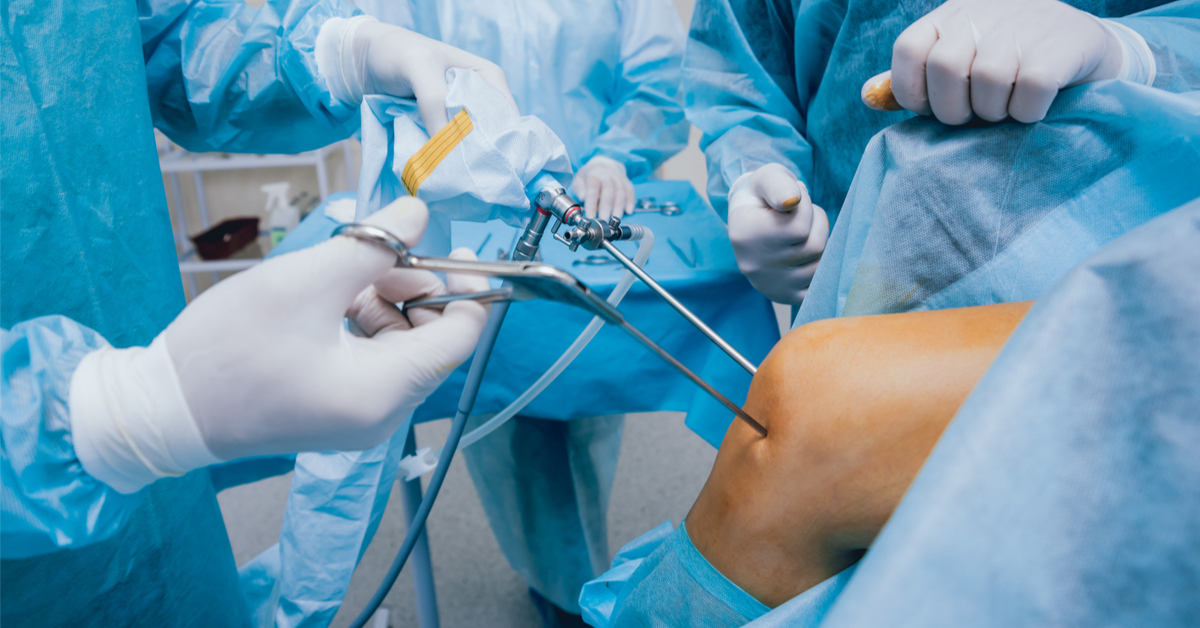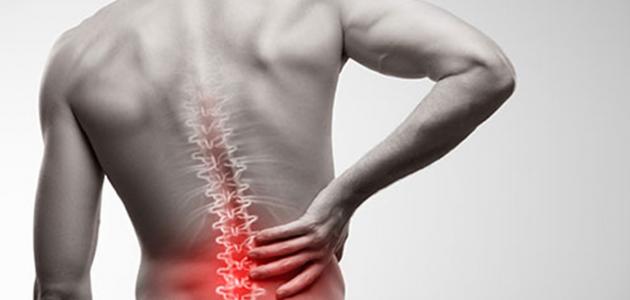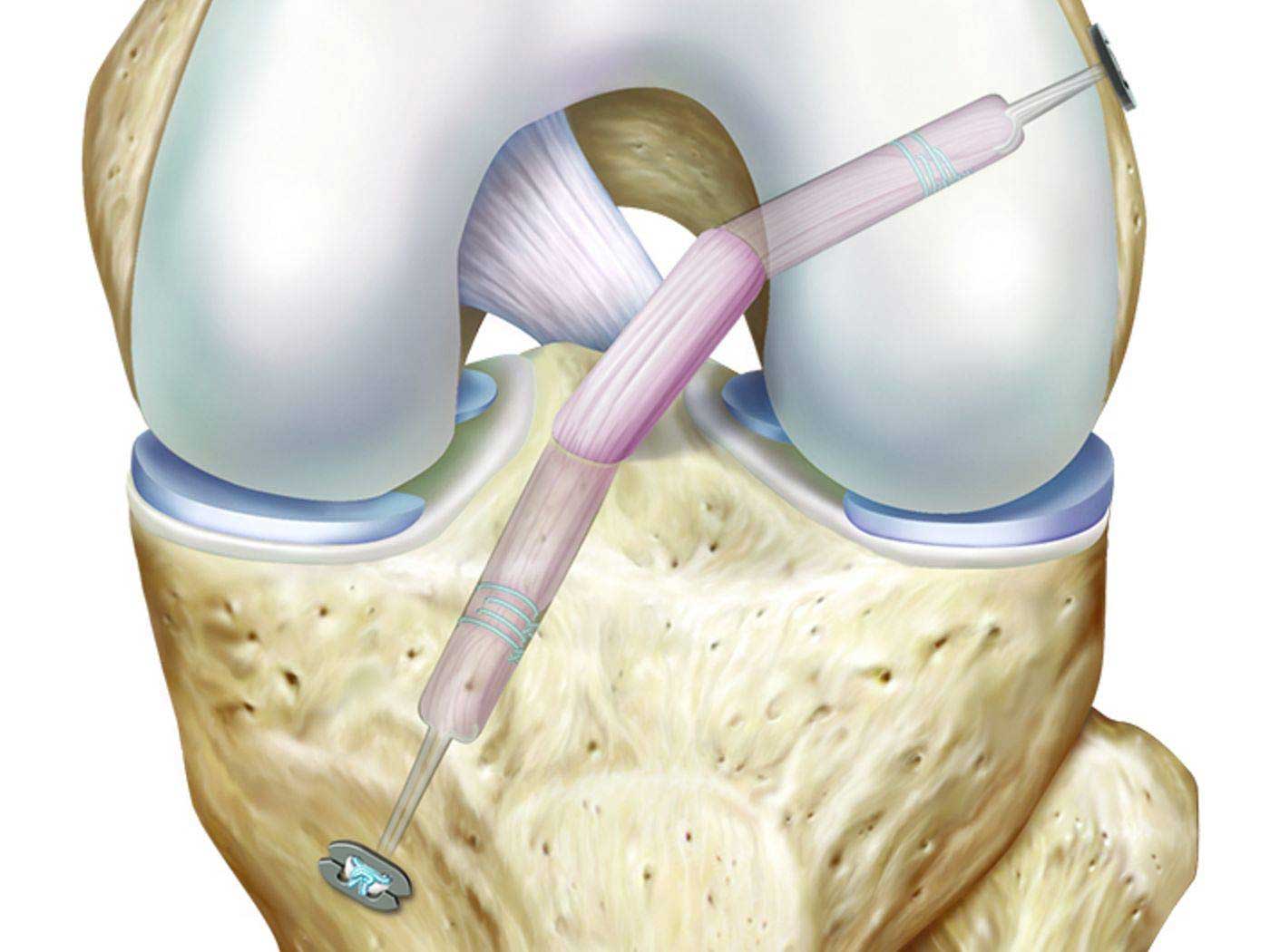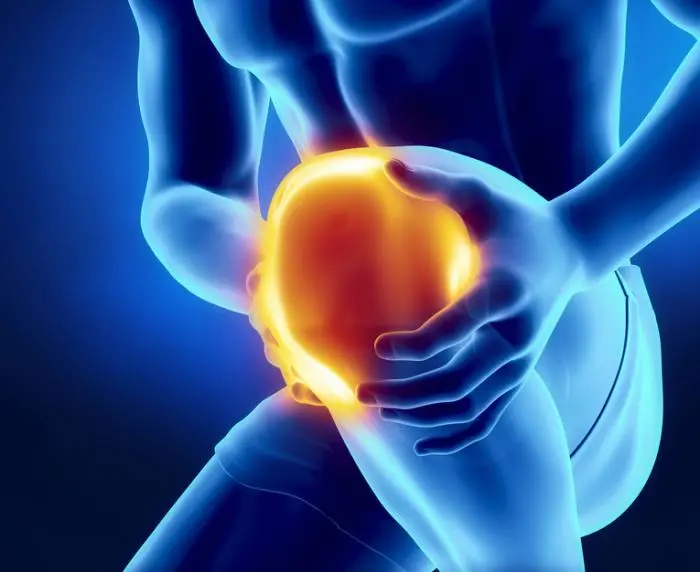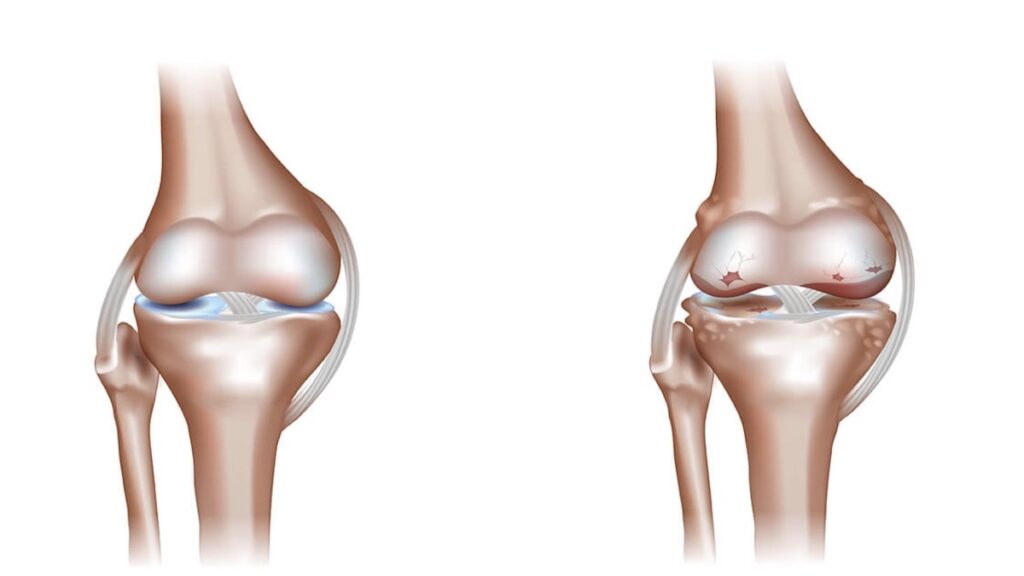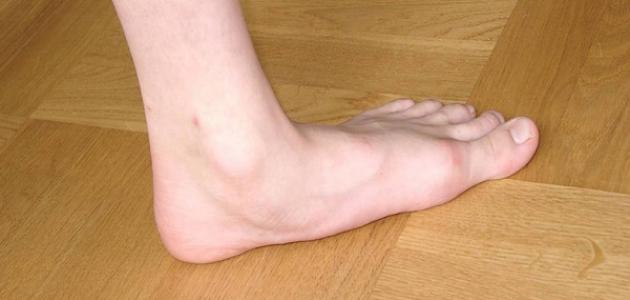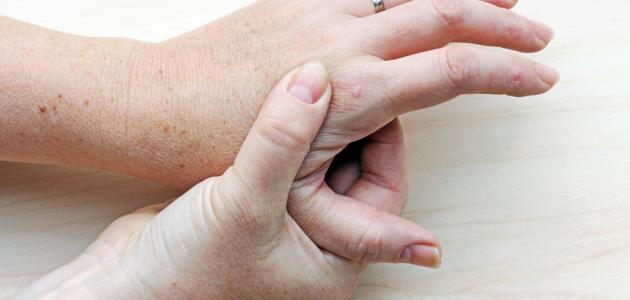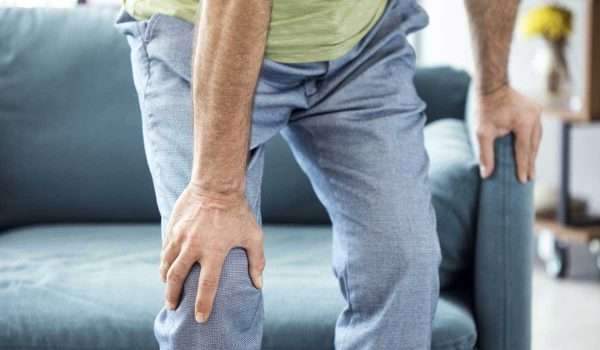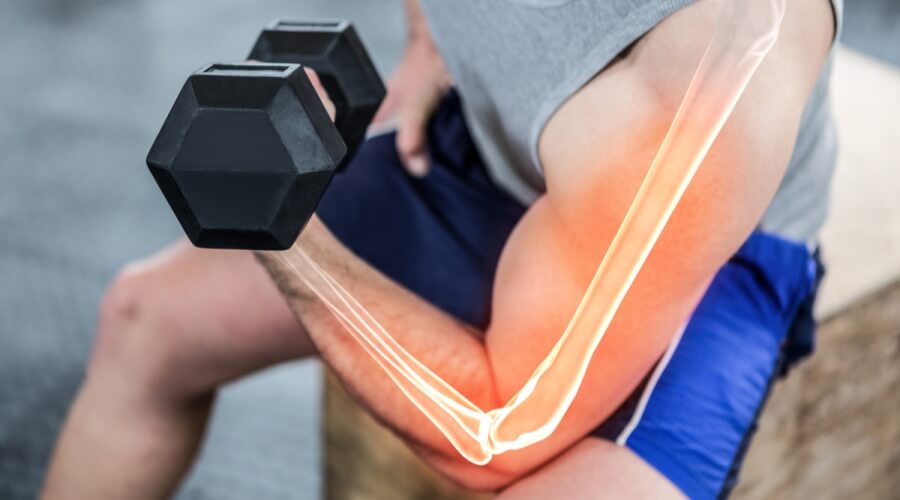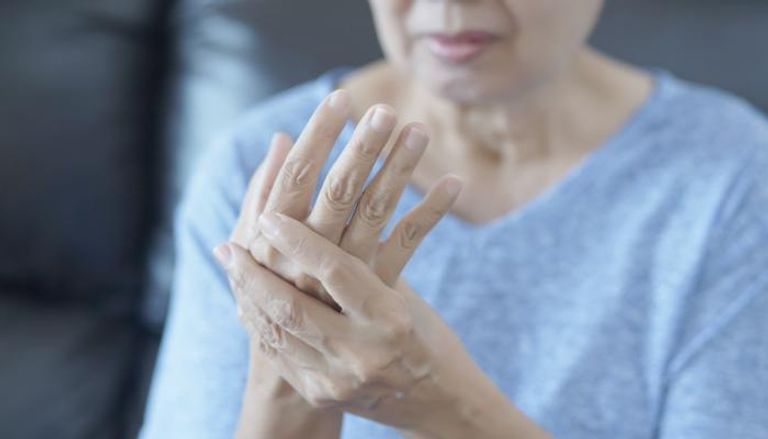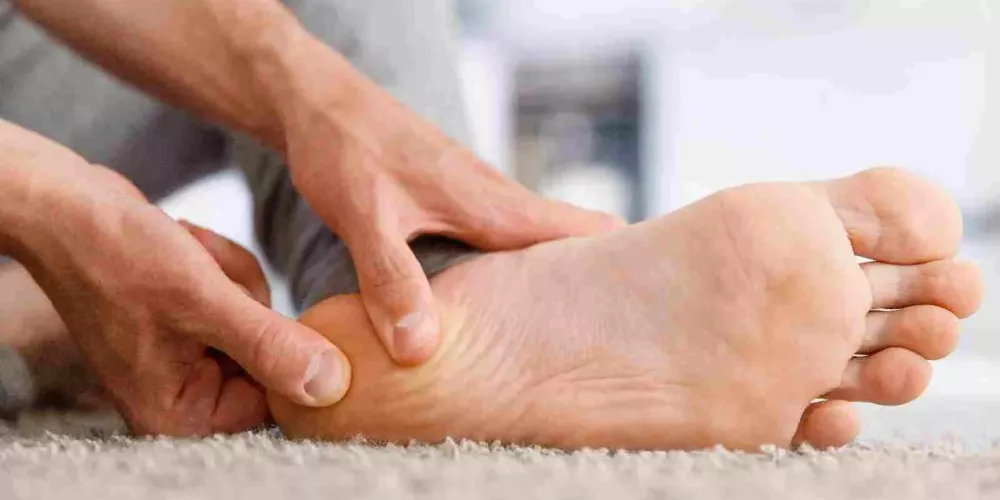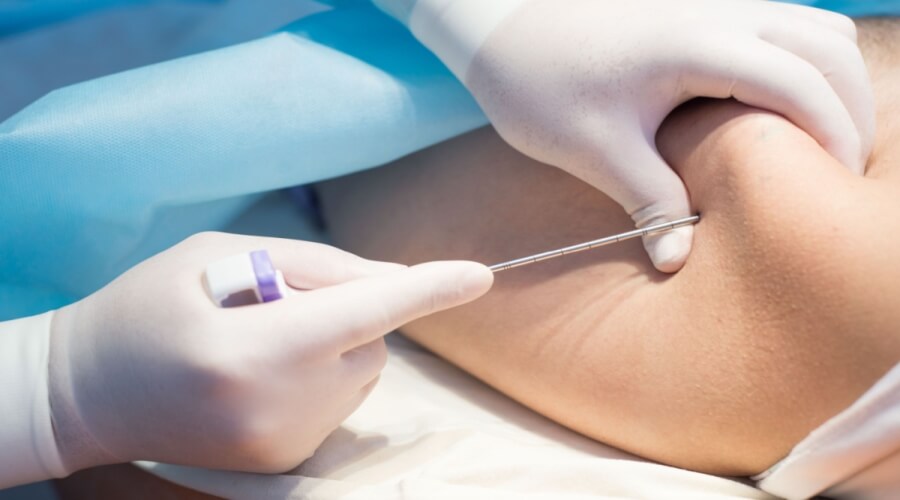Treatment for Knee Joints and the Vitamin Responsible for Knee Pain
Treatment for Knee Joints
Knee joints are sensitive areas in the human body, susceptible to injury, irritation, severe pain, and reduced mobility. To alleviate this problem and avoid its negative consequences, it is recommended to take good care of your knees and consider some beneficial treatments, which we will discuss in this article. Here are the top 7 effective ways to treat knee joint issues:
- Medication: Medication is a common option for relieving knee joint pain and improving mobility. Pain-relieving medications such as non-steroidal anti-inflammatory drugs (NSAIDs) and anti-inflammatory drugs are often prescribed. You may also need to take dietary supplements like vitamin D or collagen supplements to promote joint health.
- Physical Therapy: Physical therapy can help strengthen the knee muscles and improve their flexibility, thereby reducing pain and increasing range of motion. Common physical therapy techniques include muscle-strengthening exercises, balance exercises, self-stretching, and hydrotherapy (such as swimming).
- Rehabilitation Sessions: Rehabilitation sessions may be necessary to address knee joint issues. Rehabilitation specialists use various methods to strengthen muscles and improve mobility, including massage, heat therapy, strength exercises, and mobility-enhancing techniques.
- Use of Supportive Devices: Using supportive devices such as crutches, orthopedic braces, or specialized shoes can be an effective way to reduce weight-bearing pressure on the knee joint and alleviate pain. Consultation with a doctor or specialist may be needed to choose the appropriate supportive device for you.
- Localized Injections: When traditional treatments do not provide relief, localized injections may be the most suitable solution. Anti-inflammatory or pain-relieving medications are injected directly into the joint to reduce pain, swelling, and improve mobility.
- Laser Therapy: Laser therapy, specifically pulsed pressure laser treatment, is a non-surgical and effective method for treating inflamed knee joints. The emitted laser is directed at the joint to stimulate tissue healing and improve joint function overall.
- Surgery: In severe cases and when no improvement is seen with other treatments, surgery may be the last resort. Surgical options include joint debridement, pressure reduction on the joint, or joint replacement with an artificial implant.
What Is the Home Treatment for Knee Pain?
When a person experiences knee pain, it can be highly inconvenient and painful. Knee pain can limit a person’s mobility and impact daily activities significantly. While individuals suffering from knee pain should consult a doctor before adopting any type of home treatment, there are some measures that can be followed to alleviate knee pain.
Home treatments for knee pain include:
- Applying Ice: Applying ice to the affected knee is an effective method to reduce pain and swelling. Ice should be placed in a plastic bag and applied to the knee for 15-20 minutes, repeating this process 2-3 times a day.
- Using Elastic Bandage: Wearing an elastic bandage can provide support to the knee and reduce excessive movement, which can exacerbate pain.
- Engaging in Appropriate Exercises: Some exercises aimed at strengthening the muscles around the knee can help alleviate pain and enhance stability.
- Avoiding Impactful Activities: Individuals with knee pain should avoid activities that are painful or exacerbate the pain, such as running or jumping.
- Taking Non-Steroidal Anti-Inflammatory Drugs (NSAIDs): These medications can be used to reduce pain and swelling, but consultation with a doctor before using them is advised.
- Maintaining a Healthy Weight: Weight loss can help reduce pressure on the knee joint and decrease pain.
It’s important to note that if the pain persists or worsens, seeking medical advice is essential.
How to Naturally Treat Knee Osteoarthritis?
Knee osteoarthritis is a troublesome health issue that can impact a person’s daily life and mobility. This condition typically results from the gradual deterioration of cartilage in the knee joint, leading to pain and restricted movement. If you are suffering from knee osteoarthritis and wish to explore natural treatments before turning to traditional medical treatments, there are some methods you can follow to alleviate knee pain and promote natural healing.
- Maintain an Ideal Weight: Excess weight puts additional pressure on the knee joint, which can exacerbate the condition. It is essential to maintain an ideal weight by following a healthy diet and engaging in regular physical exercise.
- Knee Massage: Massage is considered an effective way to reduce knee pain, relieve tension, and relax the joint. Natural massage oils such as lavender oil or ginger oil can be gently massaged onto the knee area for 10-15 minutes daily.
- Use Natural Anti-Inflammatory Remedies: Some natural remedies with anti-inflammatory properties can be helpful in reducing knee pain. Turmeric-based products, ginger, sesame oil, and turmeric supplements in the form of capsules or ointments may help alleviate inflammation.
- Engage in Appropriate Exercises: Light and suitable exercises can contribute to strengthening the muscles around the knee and improving their flexibility. Consult with a medical specialist before starting any exercise program and work with a personal trainer to ensure that the exercises do not cause additional harm to the knee.
- Use Assistive Devices: Using assistive devices such as crutches or walkers may be necessary to help reduce pressure on the knee and alleviate pain during walking or prolonged standing.
- Take Dietary Supplements: Some research suggests that dietary supplements like glucosamine and chondroitin may help improve knee cartilage health and reduce pain. Consult your doctor before taking any supplements to ensure their safety and effectiveness.
- Relaxation and Rest: Make sure to give your knee sufficient time to rest and relax after strenuous physical activity. Use supportive pillows while sleeping and move slowly during motion to avoid excess pressure on the knee.
Is There a Drink for Knee Joint Pain?
Many people suffer from knee joint pain due to aging or previous injuries. One common way to alleviate joint pain is by consuming beverages believed by some to have a positive impact on joint health, reducing inflammation and strengthening cartilage. However, it should be noted that there is no magical drink that can completely cure joint pain resulting from joint problems. Still, there are some beverages that some people believe can help reduce symptoms and promote joint health.
One of the beverages that may help alleviate knee joint pain is ginger tea. Ginger is believed to contain anti-inflammatory compounds that can reduce joint inflammation and pain. You can prepare ginger tea by boiling ginger slices in water or adding ginger powder to hot tea.
Additionally, orange juice is thought to be rich in vitamin C, which can help promote cartilage growth and protect it from damage. Drinking a glass of orange juice daily may be beneficial for joint health.
Turmeric is also a beverage that may have health benefits for joints. Turmeric contains a compound called curcumin, which is considered an anti-inflammatory. You can prepare turmeric drink by mixing a teaspoon of ground turmeric with warm milk and honey for sweetness.
It’s important to note that there is no definitive scientific evidence of the effectiveness of these beverages in relieving joint pain. Results may vary from person to person, and it’s best to consult a doctor before consuming any beverage or starting a new dietary regimen. Furthermore, maintaining a proper diet and engaging in suitable physical exercises can have a positive impact on joint health.
How to Strengthen Knee Joints?
Strengthening knee joints is important for individuals who experience knee problems, whether due to aging, injuries, or chronic conditions. There are several ways to strengthen knee joints, including lifestyle changes and appropriate exercises.
- Engage in Low-Impact Aerobic Exercises: Participate in low-impact aerobic exercises such as cycling and swimming. These exercises help strengthen the muscles around the knee without putting excessive stress on them. Yoga and stretching exercises can also improve muscle strength and flexibility.
- Perform Targeted Knee Strengthening Exercises: Consider doing specific knee-strengthening exercises like leg lifts and squats after consulting with a specialized physician. You can use exercise equipment and resistance tools like weights to enhance the effectiveness of these exercises and improve muscle strength.
- Maintain a Healthy Weight: Keeping a healthy weight is crucial as excess weight can place added pressure on the joints, leading to wear and tear. Avoid overloading and activities with significant impact on the knee, such as running and jumping, as they may contribute to joint deterioration.
- Seek Professional Guidance: Consult with a medical specialist to assess your condition and receive guidance on appropriate treatment. Any knee problems should be diagnosed and treated before starting a joint-strengthening program. Physical therapy, medications, and in some cases, surgery may be necessary.
In conclusion, it is essential to focus on strengthening knee joints to maintain overall health and the ability to perform daily activities efficiently. By taking proper care and following the correct guidance, individuals can enhance the strength and flexibility of their knee joints and reduce the potential risks of injury.
How Do You Know If You Have Knee Joint Inflammation?
Knee joint inflammation is a medical condition that affects the joint, causing pain, swelling, and restricted mobility. But how can a person know if they have this condition?
One of the primary and common symptoms of knee joint inflammation is pain. When the joint is inflamed, a person may experience severe pain in the knee, and this pain may be continuous or worsen when attempting to move or stand for extended periods. The pain can be sharp and intense and may be accompanied by a feeling of tightness or heaviness in the affected area.
Swelling of the knee is also a significant indicator of joint inflammation. When the joint is inflamed, excess fluid can accumulate in the joint, leading to noticeable swelling of the knee. A person may observe an increase in the size and swelling of the knee, and the skin in the area may be red and warm to the touch.
Additionally, changes in knee movement can occur in individuals with knee joint inflammation. A person may find it challenging to move the knee naturally, feeling that the joint is stuck or catching. It may be difficult for the person to walk, turn, or bear weight on the affected knee.
Furthermore, individuals suffering from knee joint inflammation may notice changes in the appearance of the knee. There may be a visible swelling in the affected area, and the person may feel protrusion, grinding, or deformity in the knee. In cases of acute knee joint inflammation, the person may also notice that the joint feels warm to the touch.
Anyone suspected of having knee joint inflammation should seek medical attention for a precise evaluation. A doctor can perform necessary tests and provide the correct diagnosis, suggesting an appropriate treatment regimen to alleviate pain and improve the condition of the affected joint.
What Vitamin Is Responsible for Knee Joint Pain?
The vitamin responsible for knee joint pain is vitamin D. Vitamin D is produced in the body when the skin is exposed to sunlight. Additionally, vitamin D can be found in some foods such as fatty fish, vitamin-fortified milk, and vitamin-fortified foods. Vitamin D plays a crucial role in maintaining bone and joint health.
Vitamin D is essential for the absorption of calcium and phosphorus in the body. This contributes to the building and strengthening of bones and joints. Therefore, if the levels of vitamin D in the body are low, it can lead to weakened bones and joint deterioration, which may result in severe pain in the joints, including the knee joints.
Numerous studies have shown a relationship between vitamin D deficiency and joint inflammation, including knee joint inflammation. Furthermore, vitamin D deficiency has also been associated with an increased risk of chronic joint diseases, such as rheumatoid arthritis.
Therefore, it is necessary to maintain appropriate levels of vitamin D in the body to preserve bone and joint health, including the knee joints. This can be achieved by regular and proper exposure to sunlight, consuming vitamin D-rich foods, or taking dietary supplements under the guidance of a healthcare professional.
Can Vitamin Deficiency Cause Knee Pain?
Vitamin deficiency can have several effects on health, including the sensation of knee pain. Vitamins are essential components of the body’s rebuilding and renewal processes and directly impact bone and joint health.
Essential vitamins such as vitamin D and vitamin K, for example, play crucial roles in bone and joint health. Vitamin D promotes the absorption of calcium and phosphorus, both of which are essential for bone health. Additionally, vitamin K regulates calcium levels in the body and plays a vital role in preventing the formation of excess calcium deposits in the body.
When the levels of these vitamins are low in the body, it can affect bone and joint health, potentially leading to knee pain. This occurs because of the loss of bone density and exposure to wear and tear, resulting in weakened cartilage and tendons surrounding the knee joint, leading to pain.
Furthermore, the deficiency of other vitamins such as vitamin B12, vitamin D3, and omega-3 may also contribute to knee pain. A deficiency in vitamin B12 can lead to the weakness of knee muscles, while vitamin D3 plays a crucial role in promoting the health of tissues around the knee. Additionally, omega-3 has anti-inflammatory properties and may reduce swelling and pain in the knee.
It is essential for the body to obtain essential vitamins through a balanced and diverse diet. Consultation with a healthcare professional is necessary if there is suspicion of a specific vitamin deficiency that may be causing knee pain. In case of confirmation, healthcare providers can prescribe appropriate vitamin supplements to enhance overall health and alleviate knee pain.
Can Walking Help with Knee Pain?
Many people suffer from knee pain, which is a common issue individuals face in their daily lives. Among the available treatments to alleviate this pain, walking is considered one of the best options that can be adopted.
The bones, muscles, ligaments, and cartilage in the knee constitute a complex joint that undergoes stress and wear due to various factors such as aging, injuries, and arthritis. When the knee is injured or inflamed, it can become painful and affect a person’s mobility and quality of life.
Walking is a simple and natural activity that many people engage in daily without realizing its health benefits. Unlike many other sports activities, walking is low-impact, making it an ideal choice for people experiencing knee pain.
Numerous research studies have demonstrated positive results in terms of pain relief and improved mobility as a result of walking. This is attributed to the fact that walking contributes to strengthening the muscles surrounding the knee, improving blood circulation, and reducing swelling and inflammation.
Furthermore, walking offers strong preventive benefits for the knee by strengthening bones and joints and enhancing their shock-absorbing capacity. It also increases ligament flexibility and enhances knee stability, reducing the risk of serious injuries and tears.
There are no strict rules regarding the amount of walking that should be done to treat knee pain; it depends on the individual’s condition and the severity of the pain. However, generally, regular walking for 30 to 60 minutes per day is recommended, with caution to avoid overloading the knees.
Walking is not advised for people with severe knee injuries or those with chronic joint issues. If pain does not improve after a period of walking, consulting a doctor is necessary to evaluate the knee’s condition and suggest necessary treatments.
It is essential to focus on sustainability, flexibility, and improving the strength of the muscles surrounding the knee through strength training exercises and balance exercises. Working with a sports trainer or a physical therapist may be necessary to ensure the proper execution of exercises.
In general, walking is a safe and effective option for alleviating knee pain and improving joint health. With necessary precautions and continuity in practice, walking can be an essential part of a therapeutic strategy to enhance knee function and promote comfort and vitality in individuals’ lives.
Does Calcium Deficiency Cause Knee Pain?
Calcium is one of the essential minerals that the human body needs to maintain bone and dental health. While not getting a sufficient amount of calcium can lead to weakened bones and an increased risk of fractures, it cannot be directly stated that calcium deficiency causes knee pain.
Knee pain may result from several factors, such as injury, arthritis, excessive stress, or cartilage tears. Although calcium deficiency is not a direct cause of knee pain, it can have an indirect effect on bone and knee joint health.
When there is a deficiency in calcium levels in the body, it can lead to weakened bones and an increased likelihood of fractures, including knee fractures. Knee pain may result directly from bone fractures or the compromised cartilage due to weakening.
Therefore, it is crucial to consume an appropriate amount of calcium daily to maintain overall bone and joint health, not just for the knee. Calcium can be obtained from a variety of dietary sources, including dairy products, cheese, fish, nuts, and whole grain products.
Regular physical activity and maintaining a healthy weight are also necessary, as obesity and inactivity can increase pressure on the joints and raise the risk of inflammation and wear.
If you are experiencing knee pain, it is essential to consult a doctor to determine the possible cause and develop an appropriate treatment plan. Relying solely on calcium intake to alleviate knee pain is not recommended; instead, it is essential to maintain a balanced diet and engage in appropriate physical exercises to promote bone and joint strength.
Orthopedic Knee Specialist in Cairo
Dr. Amr Amal is considered one of the leading orthopedic doctors specializing in knee surgery in Cairo. Dr. Amr possesses extensive experience in this field and works passionately and diligently in diagnosing and treating diseases and injuries that affect the knee joint.
Dr. Amr Amal is known for his exceptional skills in performing knee surgeries, ranging from anterior cruciate ligament (ACL) reconstruction surgery to installing artificial cartilage and cleaning the joint from impurities and debris. He utilizes modern and advanced techniques to improve joint function and alleviate pain and swelling.
Thanks to his deep knowledge and many years of experience, Dr. Amr Amal provides comprehensive medical services to his patients. He carefully assesses each patient’s condition and offers individualized advice and guidance tailored to their health and aspirations. Dr. Amr works closely with his medical team to ensure the best possible patient care.
Dr. Amr Amal’s services also include non-surgical treatment for knee conditions, including physical therapy and assistive devices such as crutches and braces. He relies on strong scientific principles in delivering these services, with a focus on improving patients’ quality of life and enhancing their ability to return to daily activities as quickly as possible.
Thanks to his excellent reputation and commitment to the highest standards of quality and healthcare, Dr. Amr Amal enjoys widespread acceptance among patients who turn to him for knee surgery care and advice. Dr. Amr works earnestly and diligently to contribute to the restoration of knee health in his patients and improve their quality of life.
